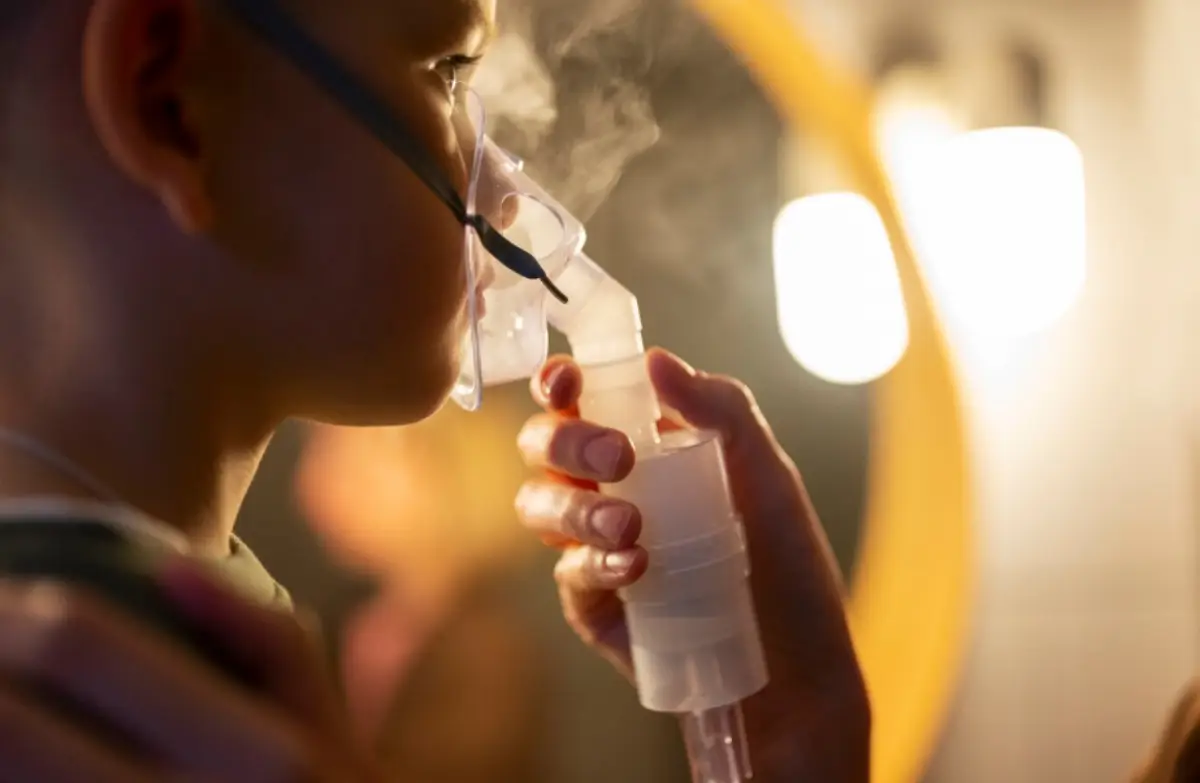Inhalent
The Overlooked Dangers of Everyday Inhalants
Inhalants occupy a unique and often misunderstood corner of substance misuse. Unlike illicit drugs that must be sought out or prescriptions that require access, inhalants are typically everyday products—paints, solvents, aerosols, and gases—readily available in homes, offices, and garages. Their accessibility, coupled with misconceptions about their danger, makes them particularly insidious. What begins as curiosity or experimentation can quickly spiral into neurological damage, sudden health crises, or hidden patterns of dependence.
For individuals navigating demanding personal and professional lives, inhalant misuse often unfolds quietly. These substances leave the body quickly, creating the illusion of harmlessness. Yet the risks are profound: hypoxia, sudden cardiac arrest, and irreversible brain damage can occur even after a single use. At Legacy Healing Center New Jersey, we recognize that recovery from inhalant addiction requires more than stabilization. It calls for the restoration of clarity, vitality, and dignity, safeguarded at every step with discretion and clinical expertise.
How Inhalants Damage the Brain and Body
Inhalants are substances that produce chemical vapors, which, when inhaled, depress the central nervous system and deprive the brain of oxygen. The result is a fleeting sense of euphoria or lightheadedness—effects that may last only a few minutes but carry life-altering risks. Unlike drugs that directly stimulate neurotransmitters, inhalants disrupt normal brain activity by starving cells of oxygen, causing damage that can be permanent.
While the initial appeal may be a brief escape or sense of release, the toll is severe. Prolonged use erodes cognitive function, weakens emotional stability, and damages vital organs. Even single episodes can lead to catastrophic outcomes, including “sudden sniffing death syndrome,” where an irregular heartbeat or oxygen deprivation proves fatal. Understanding these mechanisms is essential to recognizing why inhalant misuse requires urgent and comprehensive intervention.
From Solvents to Gases: Different Types of Inhalants
The term “inhalant” encompasses a broad spectrum of substances, many of which are legal and commonplace. Their accessibility often obscures their dangers, yet each category carries unique risks:
Volatile Solvents
Common products such as paint thinner, glue, and gasoline fall into this category. These substances vaporize at room temperature, making them easy to inhale but profoundly damaging to the brain, liver, and kidneys.
Aerosols
Spray paints, hair sprays, and household cleaners release pressurized vapors. Misuse can lead to immediate disorientation, respiratory damage, and long-term neurological harm.
Gases
Substances like butane lighters, refrigerants, and nitrous oxide (“whippets”) are frequently misused recreationally. These gases carry significant risks of asphyxiation, frostbite injuries, and sudden cardiac arrest.
Nitrites (“Poppers”)
Often inhaled for their muscle-relaxing effects, nitrites dilate blood vessels and lower blood pressure. While sometimes associated with social settings, their misuse can result in cardiovascular collapse and long-term damage to the immune and neurological systems.
Signs and Symptoms of Inhalant Use
The effects of inhalants vary depending on the type, amount, and frequency of use. At first, they may appear to provide nothing more than a momentary escape. Yet the range of consequences is vast, and the line between brief euphoria and serious harm is dangerously thin.
At Lower Doses
Inhalants may initially create feelings of dizziness, laughter, euphoria, or lightheadedness. Disinhibition and sociability may increase, giving the false impression of harmless experimentation.
At Higher Doses
Greater exposure leads to confusion, aggression, hallucinations, and significant motor impairment. Physiological effects often include nausea, vomiting, irregular heartbeat, and risk of unconsciousness.
Crash or Withdrawal Symptoms
Once the brief effects fade, individuals may experience irritability, depression, sleep disruption, and cravings. Withdrawal can also involve headaches, tremors, and anxiety—further perpetuating the cycle of use.
Overdose Warning Signs
Overdosing on inhalants can occur suddenly, with symptoms including seizures, respiratory distress, irregular heart rhythms, or unconsciousness. “Sudden sniffing death syndrome” is one of the most severe risks, requiring immediate emergency medical intervention.
How Inhalant Addiction Develops Over Time
Inhalant dependence rarely begins with the intent to misuse. It often starts with curiosity, accessibility, or the misperception that these substances are safer than illicit drugs. Over time, patterns deepen, and the risks become inescapable.
- Experimental Use: Initial misuse may be driven by curiosity, peer influence, or stress, often with little awareness of the potential dangers.
- Pattern Development: As use becomes routine, individuals may begin to seek inhalants deliberately, using them to relieve emotional distress or to escape reality temporarily.
- Growing Dependence: Tolerance develops, leading to higher doses or more frequent use. Cravings and emotional reliance intensify, and physical symptoms begin to manifest between episodes.
- Compulsive Involvement: At this stage, inhalant use continues despite mounting physical, emotional, and professional consequences. Stopping feels overwhelming without professional intervention.
Unseen Hazards: The Hidden Threats of Inhalant Misuse
Though often dismissed as less serious than other substances, inhalants carry unique dangers that can be both immediate and irreversible.
- Neurological Risks: Oxygen deprivation damages brain cells, leading to permanent memory loss, impaired cognitive function, and even dementia-like symptoms.
- Cardiovascular Strain: Inhalants place immense stress on the heart, raising the risk of arrhythmias, cardiac arrest, and sudden death.
- Respiratory Risks: Chemical vapors irritate airways and lungs, while hypoxia from repeated use can cause lasting respiratory damage.
- Polysubstance Patterns: Inhalants are sometimes used alongside alcohol or other substances, compounding dangers and increasing the risk of overdose or fatal complications.
Beneath the Surface: The Quiet Erosion of Daily Life
The ripple effects of inhalant misuse extend far beyond the immediate episodes of use. What begins as concealed behavior often becomes increasingly difficult to hide, undermining health, relationships, and professional standing.
|
Professional Consequences Declining performance, unreliability, and cognitive impairment erode trust in the workplace. Careers once built on precision and dependability may falter. |
Cognitive Strain Memory lapses, slowed thinking, and impaired judgment often follow prolonged inhalant use, replacing clarity with confusion. |
Personal Struggles Emotional instability, secrecy, and irritability strain relationships, leaving loved ones isolated or distressed. |
Physical Toll Chronic fatigue, visible health decline, and organ damage emerge, often making the impact of use externally evident over time. |
A Structured Approach to Inhalant Withdrawal and Healing in New Jersey
Recovery from inhalant addiction requires more than ceasing use; it demands stabilization of body and mind, supported by a continuum of professional care. The withdrawal process can be emotionally and physically taxing, making guided treatment essential.
Detox Placement & Stabilization: Medically supervised detox settings provide safety and stability, helping to ease withdrawal symptoms such as depression, fatigue, and cravings.
Residential Treatment Coordination: For those requiring immersive care, Legacy coordinates with partner facilities that offer structured, restorative environments where both body and mind can begin healing.
Partial Hospitalization Program (PHP): PHP provides intensive daily therapy while allowing evenings in private accommodations, balancing structure with autonomy.
Intensive Outpatient Program (IOP): For individuals balancing professional or family responsibilities, IOP offers flexible scheduling alongside robust therapeutic support.
Outpatient Program (OP): Ongoing outpatient care sustains progress with continued therapy, relapse prevention, and accountability, while supporting independent living.
Aftercare Planning & Alumni Network: Recovery extends beyond treatment. Legacy’s alumni program offers confidential support, wellness-focused events, and long-term connection, ensuring recovery is sustained well into the future.
Knowing When It’s Time to Reach for Support
Because inhalants are often dismissed as common or harmless products, it can be difficult to recognize when use has crossed into dependence. Knowing the signs is critical:
- Repeated use of inhalants to cope with stress, anxiety, or emotional strain
- Struggling with memory, concentration, or unexplained health issues
- Experiencing cravings, headaches, or emotional instability when not using
- Isolation, secrecy, or strained relationships linked to substance use
- Any instance of unconsciousness, cardiac irregularity, or overdose symptoms
Your Path to Healing from Inhalant Dependence Starts at Legacy
Recovery from inhalant addiction is not only possible; it can begin today with the right support. At Legacy Healing Center, our care is built on discretion, compassion, and clinical expertise. Every drug rehab program in New Jersey is designed to safeguard privacy while restoring health, clarity, and dignity.
Call us at (732) 402-0352 or verify your insurance online. Every conversation is confidential, and the opportunity to reclaim your well-being is already within reach.
We serve individuals and families across Parsippany, Morris County, Camden County, Trenton, Edison, Jersey City, and surrounding areas. Our goal is simple: help you safely recover and rebuild a life of purpose and clarity.
📞 Call Now: (732) 402-0352 | Contact Us | Admissions | Verify Insurance
FAQs About Inhalant Abuse & Treatment




